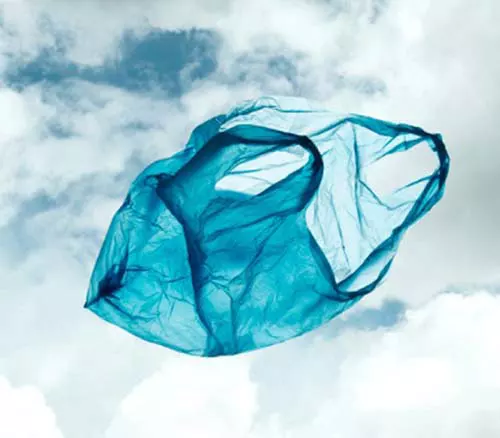New Research Shows U.S. Cities How to Manage Plastic Pollution Reduction

Let’s face it, we all know pollution is a pain for cities. Besides the fact that litter is an eyesore, there are a lot of problems that stem from pollution like the higher taxes that are needed to pay for clean up efforts. For these reasons and more, eliminating pollution is appealing to many cities in the United States. Many cities across the U.S. are trying to resolve the problem by targeting one of the main offenders; single-use plastic bags.
There are a variety of ways a city or municipality can go about pollution reduction. The number of disposable plastic bag bans and fees being implemented is rising rapidly in the U.S., but how is a city to know which solution is the best for them? New research shows U.S. cities how to manage plastic pollution reduction.
The Problem with Plastic Pollution
Plastic pollution can clog storm drains and cause flooding, which in turn causes more problems and damage as well as putting people lives at risk. The thin film that makes these bags lightweight also means they can easily be picked up by the wind and deposited in trees, shrubs, or bodies of water.
Plus, as we are all starting to really understand, plastic does not safely breakdown. When exposed to sunlight over an extended period of time, plastic will break apart into smaller and smaller pieces of plastic. It is more likely an animal, especially marine animals that will be entering our food chain, will ingest plastic when it is in smaller fragments called microplastics.
Additionally, chemicals from these plastic pieces can leach into the soil and into our water supply. Think too about all of the animals that become tangled in plastic bag litter and are left defenseless and once an animal consumes all or part of a plastic bag, they can die.
When all of these possible outcomes are weighed against the convenience disposable plastic bags offer those perks no longer seem worth it.
Research Shows Disposable Plastic Bag Bans Are Effective at Pollution Reduction
The latest research shows that bag bans are typically the most effective measure when it comes to reducing plastic pollution, simply because single-use plastic bags are no longer allowed. Not all bag bans achieve the desired results though. As some cities, such as Austin, Texas have learned, banning disposable plastic bags can cause more harm than good.
Austin’s ban targets thin plastic bags; plastic bags thicker than 4 mil are deemed reusable, and are allowed. After their ban was implemented, disposable plastic bag use in Austin dramatically decreased, but there was an uptick in the use of thicker plastic bags.
Many shoppers treated these thicker plastic bags as disposable, and these thicker bags have proven to cause more trouble than the thinner plastic bags. This isn’t to say all bag bans are bad news and have unintended results.
The lesson to be learned here is that the language of the ban needs to include any type of bag that could pose a threat. Bans that do not allow for any plastic bags are effective at reducing plastic pollution.
Learn More and Follow the Bag Ban Movement
- For more info about the effectiveness of different plastic pollution reduction measures check out this research by Megan E. McLaughlin and John M. Halstead from the University of New Hampshire.
- If you want to learn more about the plastic bag ban movement we have an interactive plastic bag ban map that tells the story of not only bag bans, but also bag fees throughout the U.S. and the world. This map tracks the pollution reduction efforts that succeed, as well as the measures that fail to pass. Presenting the success stories alongside the not-so-successful stories inspires and informs.
- We have also put together a list of the Top Green Cities in the U.S. as a way to acknowledge and recognize cities that are doing their part to make the planet a greener place. Check it out to see if your city has earned this distinction, and if it has please grab the badge to display on your blog or site.
Do you know of any cities that are missing from our bag ban map or the Top Green Cities list? Let us know in the comments and we’ll get them added!
